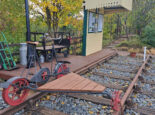Food recycling: food for thought

Food waste recycling in Peterborough has just been improved, with free caddy liners making recycling easier than ever. And with the city’s food waste helping to generate enough clean electricity to power the equivalent of 400 homes annually, there’s every reason to do so
Close to a fifth of all the food we buy is thrown away. Across the country we collectively ditch around 15 million tonnes of food every year. The strain this places on household budgets is staggering, costing the average household £470 a year. That’s money that could be better spent elsewhere! Of course, not all waste can be prevented. Vegetable peelings, tea bags, bones and scrapings are unavoidable and, with the best intentions in the world, some items inevitably slip by their use-by date.
But what’s done with the food waste we do generate can make a big difference. The majority of the UK’s food waste still ends up in landfill sites, where harmful gases such as methane are released as it rots. Methane is a climate changing gas with 21 times the warming potential as carbon dioxide – an environmental disaster. Landfill is also expensive, costing councils more than £100 per tonne of waste disposed of in this way.
Four years ago much of Peterborough’s food waste was sent to landfill. Then in October 2012 the council launched its food waste recycling service in a bid to cut costs and reduce the environmental impact of the city’s waste. Today Peterborough’s food waste is taken to two treatment plants in Bedfordshire and Northamptonshire where it is broken down to produce biogas. This gas is then burned to produce clean, renewable energy in a process known as ‘anaerobic digestion’, or AD for short.
Environmental benefits
AD is as close to a perfect solution to our food waste as you can get. The process sees food waste sealed up in oxygen-free tanks where it breaks down to generate the biogas. The gas is burned in a combined heat and power (CHP) plant to generate heat – which can be used locally – and electricity, which is exported to the National Grid. This helps to reduce dependence on the likes of coal and traditional gas, thereby displacing carbon emissions. The only byproduct from AD is ‘digestate’, a nutrient-rich fertiliser that’s sold on to farmers to spread back onto the land. This offers a further environmental benefit because it replaces artificial fertilisers derived from fossil fuels.
‘Food waste recycling is so much better for the environment,’ explains Peterborough City Council’s Recycling Contracts Officer Amy Nebel. ‘It really is a win-win situation. It creates renewable energy and the digestate at the end of the process helps to close the loop by improving the soil for future crops.’
The facts speak for themselves: For every tonne of food waste recycled up to a tonne of carbon dioxide is prevented from entering the atmosphere. With around 300 tonnes collected every month across Peterborough, that’s a huge carbon saving, while enough clean electricity is generated from the food waste collected in a year to power the equivalent of 400 homes for a year
Improved service
Food waste recycling rates in Peterborough are impressive, but there’s plenty of room for improvement. Despite the kerbside recycling service, 28% of residual black bin waste is still made up of food waste.
‘We want to remind people how important it is to recycle their food waste and to encourage them to do so,’ says Amy. ‘One of the ways we’re doing this is to distribute caddy liners free of charge to all residents. ‘Some residents have been discouraged from recycling their food waste because they didn’t want to go out and buy replacement liners. So we’ve removed this barrier by ensuring no one need ever run out again. Every household has now received a new roll of liners. The roll includes a bin hanger to display on your outside grey food caddy for when you require a replacement roll.’
By ensuring an on-demand supply of caddy liners the council aims to make the service even more convenient to use. Recycling isn’t just the most environmentally friendly way to deal with food waste it’s also the cheapest, thanks to the landfill fees that are avoided. This means that the extra cost of supplying the liners should be more than offset by improvements in the recycling rate, thereby saving the council – and council taxpayers – money. And the more money that can be saved on waste management, the more can be spent on frontline services such as social care.
‘We’re all human and people can sometimes forget to use their caddies or slip back into the old ways of putting everything in the bin,’ adds Amy. ‘But food recycling is easy and it’s something that everybody can do. By supplying the liners there’s really no longer any excuse not to take part!’
Need a food waste caddy? If you are missing a food waste recycling caddy call Peterborough Direct on 01733 747474.















